 "/>
"/>
 "/>
"/>

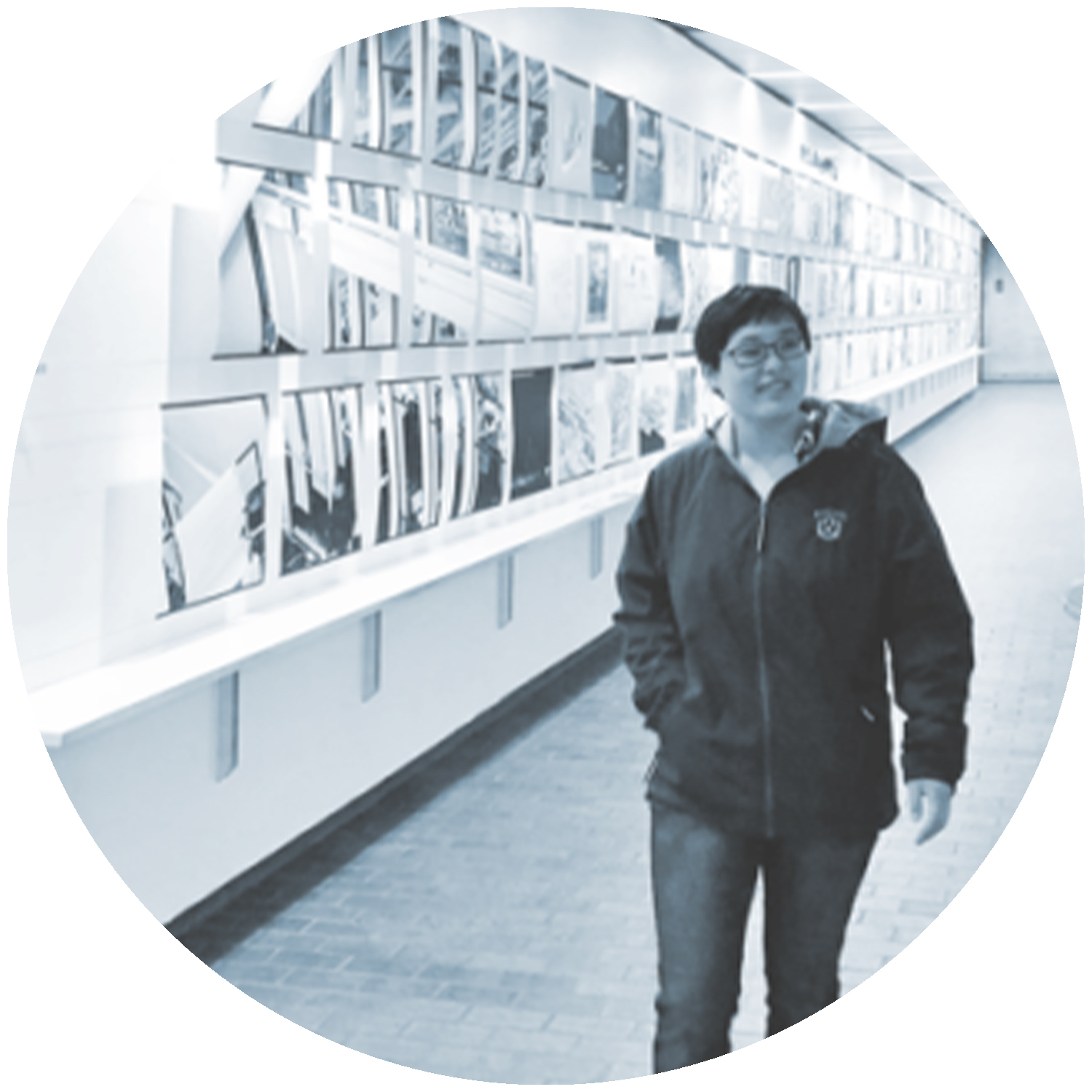
Christin Hu
upinthenimbus@gmail.com
HARVARD UNIVERSITY GSD, MLA
哈佛大學設計學院景觀建筑碩士
MACAULAY HONORS COLLEGE AT THE CITY COLLEGE OF NEW YORK (CCNY)
Spitzer School of Architecture (SSA), B.Arch
紐約市立大學(CCNY)建筑學榮譽學士
通過這種便捷的方式使公眾在家能夠隨時設想共享景觀設計方案,讓人們有更多機會與景觀專業人士和當地社區領導進行更有效的溝通。除此之外就是為公眾提供了一個特定的平臺,使其可以通過游戲結果與本地的景觀設計師取得聯系。
—Christin Hu
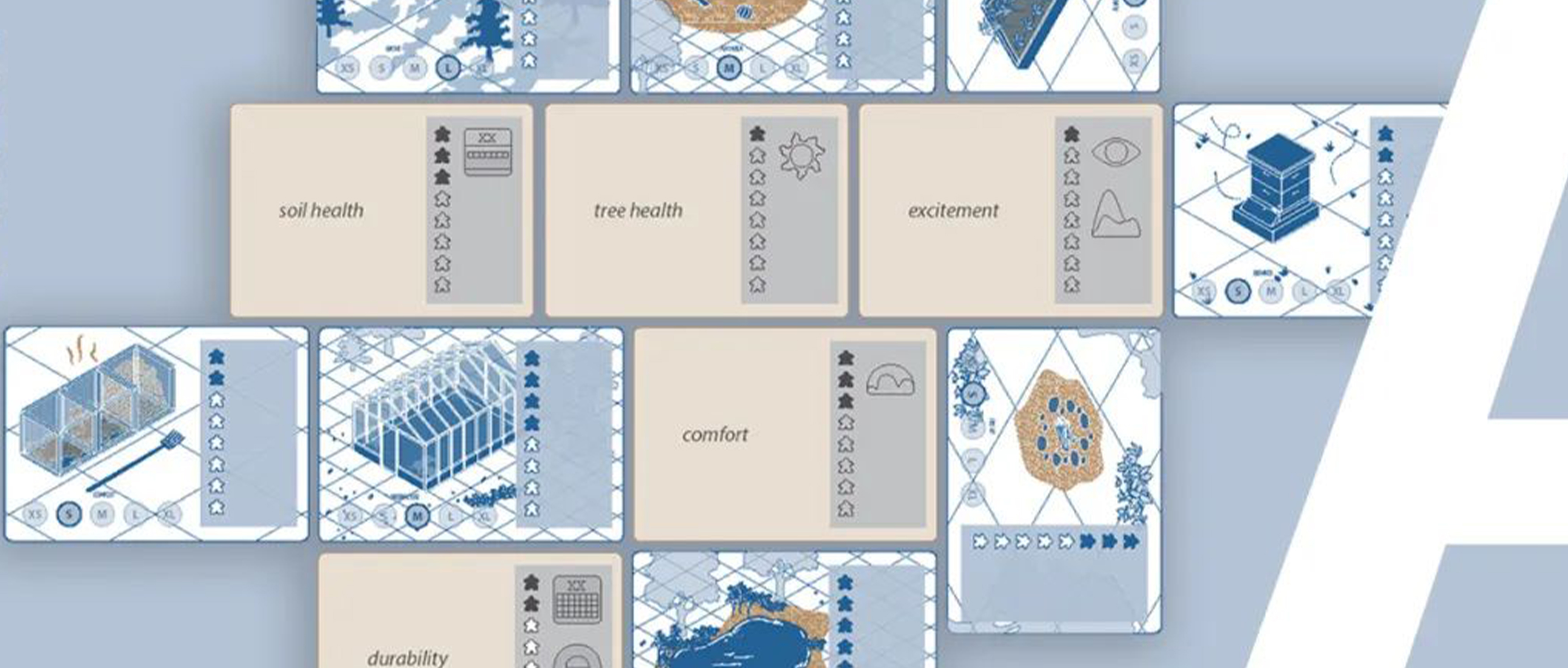
01 / 景觀桌游的設計框架
Landscape Board Game Framework
█ 你本人是桌游的超級粉絲嗎?為什么會選擇“景觀游戲” 作為畢業設計的主題?這是一個令人震驚的畢設主題嗎?
Are you a super big fan of tabletop games? How did you pick the topic of Landscape Game for your thesis at GSD? Is this the most outrageous thesis topic ever?
C:我的確非常喜歡桌游, 因為許多桌游都需要協同合作,而我也很享受跟同伴一起獲勝的快樂。選擇這個主題作為畢業設計是出于眾多因素的綜合考慮,包含我對游戲本身的興趣,也包含想要發展潛在的參與性實踐的想法以及我在當地城市農場的志愿經歷。這的確是一個獨特的主題,但這并不是第一次有人想要通過游戲的方式來完成畢業設計。我認為這個項目的獨特之處在于,它將設計關系貫穿于整個項目過程與方法中,類似于玩家在游戲當中所做的。因此,已有一些關于公共建筑項目和城市規劃的游戲,但沒有什么能比 “景觀游戲”更能在景觀建筑領域獨樹一幟的了!
另一方面,我從小學就對游戲感興趣,所以對我來說這并不是一個非常震驚的畢業設計主題。事實上,它幫助我認清什么是自己喜歡做的事,以及作為一名設計師我想要做什么。通過這個過程,我發覺一切都有源可溯。
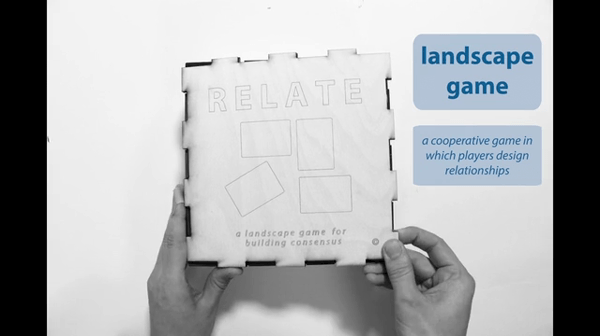
游戲介紹視頻
Yes, I enjoy board games a lot! Many board games are cooperative, and I like winning together. The topic of my thesis project came from a mix of things including my interest in games, but also the potential of expanding participatory design practices, and my ongoing volunteer work at a local urban farm. The design of a “landscape game” is definitely a unique thesis. But it’s not the first time anyone has ever done a game for his/her thesis project. I think what’s special about this project is that it embeds designing relationships throughout its process and methodology, similar to what players do in the game itself. While there are many “games” that are typically supplemental to public architecture projects and urban planning, there was not anything quite like a “landscape game,” which makes it unique in the landscape architecture department.
On the other hand, I do not think it’s an outrageous thesis topic for me, as I have been interested in games ever since grade school. It actually helped me to figure out what I enjoy doing and what I would like to do as a designer. Throughout the process, I felt like it just made sense because it was really a combination of prior volunteer experience at the urban farm, plus meeting other people who really like games, plus actually playing those games. I also got a lot of encouragement from my advisor during my semester!
█ 您是在何時產生了這種用游戲來促進公眾參與的想法?您的課題研究是否有受到與桌游相關的經歷、課程或書籍的影響?
At what point did you come up with the idea of using games as a way to get the public involved? Are there any experiences/courses/books related to tabletop games that influenced your research?
C:大概是在哈佛大學設計學院開學不久之后,那時我也同時開始在Haley House Thornton Street城市農場和社區花園進行志愿服務。在那里,我結識了在城市農場工作的人們,發現他們也玩桌游,那也是我第一次接觸并開始玩“龍與地下城”這個游戲。從那時起,我開始籌劃名為Relate的游戲,其中借鑒了許多我接觸過的游戲。在各種游戲類型中,我最喜歡的是合作游戲,因為合作游戲可以讓我和家人朋友一起玩并實現共同的目標。我認為正是這些游戲里某些機制上的力量,讓我決定將他們運用到我的畢業設計中。
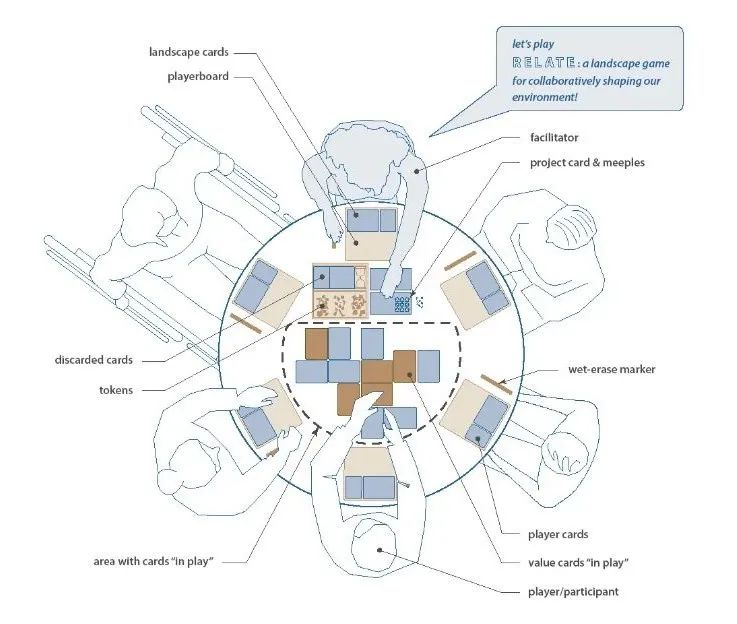
游戲場景示意圖
畢設的那個學期,我選了一門游戲設計課程,在麻省理工學院學習游戲設計與開發。(https://education.mit.edu/course/cms-590-11-127-cms-863-11-252-design-and-development-of-games-for-learning/)這門課對我的畢業設計產生了很大的影響。該課程專門針對游戲設計,因此我也有機會閱讀了很多關于游戲教育的文獻。那也是我開始在進行教育類的游戲設計中關注價值觀的一個起點。
另一個相關的經歷是我和我的朋友們(Nick,Savannah,Colin,Aysha)一起在設計學院組織了一個游戲俱樂部叫做Game!GSD。我們會在晚上的設計學院里組織游戲之夜的活動,內容就是玩游戲和討論游戲相關的話題。在這個活動里,我們會遇到其他系對游戲設計感興趣的人,他們很多人正在為各自以游戲為主題的畢業設計或論文做測試,我們也因此有機會測試其他人的游戲。于我們來說,這是一個完全沉迷在游戲機制中以及從現有的游戲中學習的機會。
關于書籍的話,有一本Josh Lerner寫的《使民主變得有趣》的書非常不錯。這本書介紹了游戲可以對我們做決策的過程產生影響。可以說,一個人在玩游戲時要做決定,跟在做設計的過程中要做決定,本質上是一樣的。
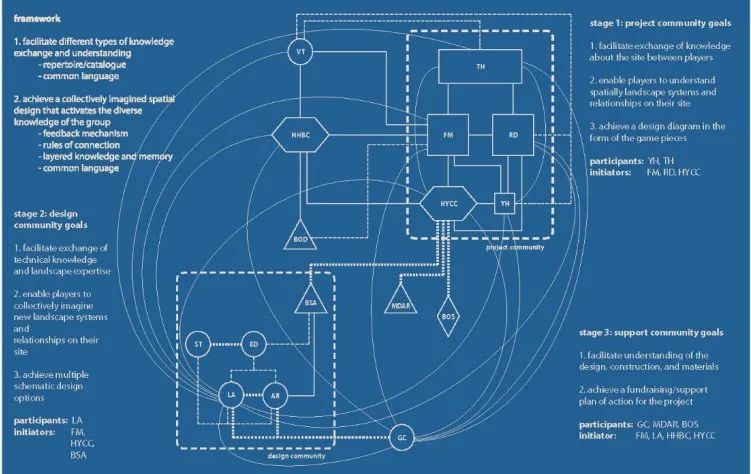
游戲參與者設計框架
It was probably a little bit after I started at the GSD and started volunteering for the Haley House Thornton Street Urban Farm & Community Gardens. At that point I was able to meet people at the urban farm and people there also played games. It was actually my first time playing Dungeons & Dragons at that time. Starting from there, I started to think about the game, called Relate. It draws from a number of other games that I’ve encountered. I like cooperative games the most, which can be played with families and friends towards a shared goal. I think it was really this strength of certain game mechanics that made me decide to include them in the project.
During my thesis semester, I took one game design class, Design, and Development of Games for Learning at MIT (https://education.mit.edu/course/cms-590-11-127-cms-863-11-252-design-and-development-of-games-for-learning/) that really made an impact on my thesis project. The class was game design specific, so I had a chance to read a lot of literature related to educational games. That's where I started to pick up things like certain values or aspects that people think about when they're designing educational games.
Another related experience was actually running a game club with my friends, Nick, Savannah, Colin, and Aysha, called Game!GSD. We essentially plan game nights at the GSD and just play and talk about games. We were able to meet other people in different departments who worked on game designs for their theses, and playtest other people's thesis projects. It was a chance for us to totally nerd out over game mechanics, as well as learn from existing games.
For books, there is one called Making Democracy Fun by Josh Lerner. It’s a really good book about how games can be impactful during decision-making processes. You’re essentially making decisions when you play games, which is also true of the design process.
█ 你講到了你的許多志愿經歷,可以和我們談一下在整個畢業設計過程中這些經歷是如何幫助你的?
As you mentioned a lot about your volunteering experience, could you talk a little bit more about how it helped you during the process?
C:在我整個畢業設計的項目周期中,在Thornton Street農場的經歷都對我至關重要,不僅僅是因為我的游戲就是為在那里的人而設計,更重要的是,他們對教育類游戲有著批判性的思考,激勵著我完成這個項目。而且我發現不論是在農場玩游戲,探討設計還是做志愿服務,我都更愿意與人交流。
最初的游戲由很多元素組成,例如景觀卡,并且受到了Thornton Street城市農場中諸多方面的影響。可以說,我的經歷與項目過程之間的關系類似于畫靜物,都需要有一個具體的生活場景。如果沒有這個場景,這個項目就不會存在。
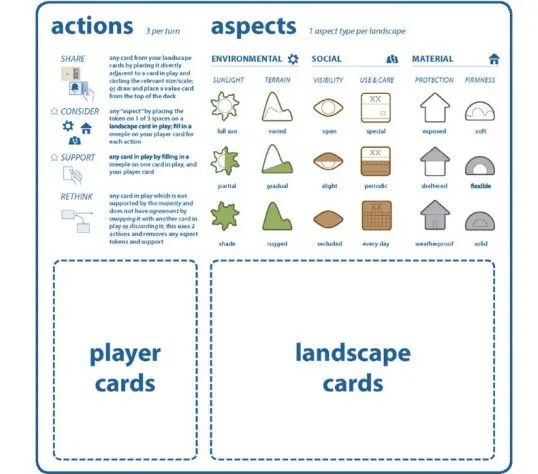
游戲板示意圖
對我來說,在城市農場工作并成為社區的一員也是非常關鍵的。這些經歷使我能夠在城市農場開展畢設項目,并逐漸將這些元素融入游戲當中。我設法確保這些組成部分的通用性,以便它們可以應用于不同類型的項目,但同時它們也必須足夠具體,以建立與游戲參與者之間的聯系。在農作物生長的季節,我基本上每個月都會至少去一次農場,因此與單純從書本上學習相比,這段與景觀接觸的經歷也更加獨特。除此之外,農場旁還有一個Hawthorne青年社區中心,在那里我也有機會和小至八歲的鄰居一起進行游戲測試。
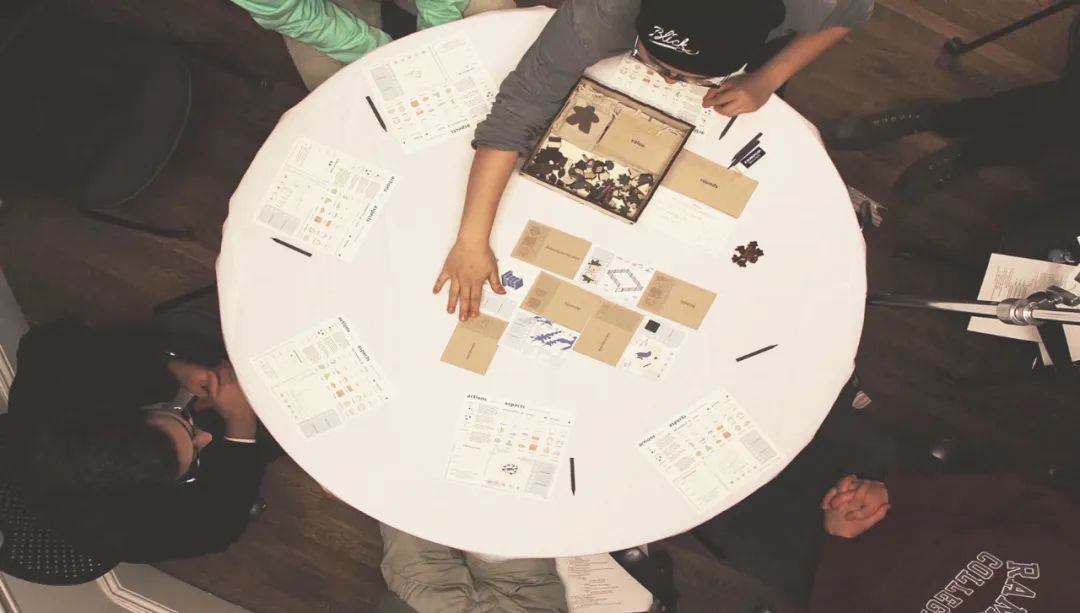
與社區朋友一起進行游戲測試
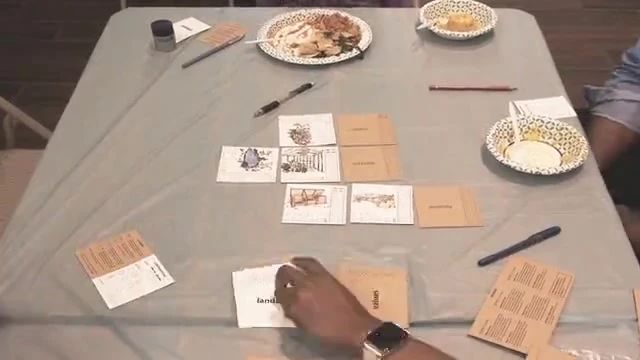
游戲測試
The volunteering experience at Thornton Street Farm was really important to me during my thesis, not only because they were essentially the people I was designing the game for, but also because they were the people who really helped motivate me to do the project. They think critically about educational games, and I found out that when I play games and talk about design as well as volunteer at the farm, I'm more open to talking to anyone.
The initial game has a lot of elements like landscape cards and was influenced by aspects that you would find on an urban farm. The connection between my experience and the project process is sort of similar to doing a still life drawing that needs to have a context – the “life.” Without that, the project would not exist.
It was also important for me to work at the urban farm and be a part of the community. It helped to start the project at the urban farm and gradually incorporate elements into the game beyond that. I tried to keep the components general enough so they can be applied to different types of projects, but they also had to be specific enough so that people can relate to them. I went to the farm at least once a month during the growing season, so it allowed me to be in touch with the landscape differently than purely learning from books. There was actually another organization next to the farm, the Hawthorne Youth and Community Center, where I was also able to playtest the game with the neighbors as young as eight years old.
█ 設計游戲和做設計項目最大的區別在哪?過程中有遇到一些挑戰或者困難嗎?
What is the big difference between designing a game and doing a design project? Any challenges or difficulties?
C:我覺得與設計桌游相比,學術項目的不同之處在于與人,尤其是與未來用戶之間的真正聯系。但是許多畢業設計項目仍是推測性的,并沒有與假設客戶或在社區進行實際測試,因此這些項目大多停留在提案階段。而游戲的挑戰和有趣的部分恰恰在于需要與真實的社區成員進行游戲測試,這個過程中充滿了不可預測的反饋,我們要依此進行不斷的完善。在游戲設計的過程中,游戲玩家需要親自體驗游戲,這與典型的自上而下的建筑過程相比,更注重實踐操作,例如在地里感受土壤和種植南瓜,二者是完全不同的角度。因此,游戲設計有助于讓我進行更現實的思考,就像人們在設計共享社區花園時所需要的思維一樣。
圖片
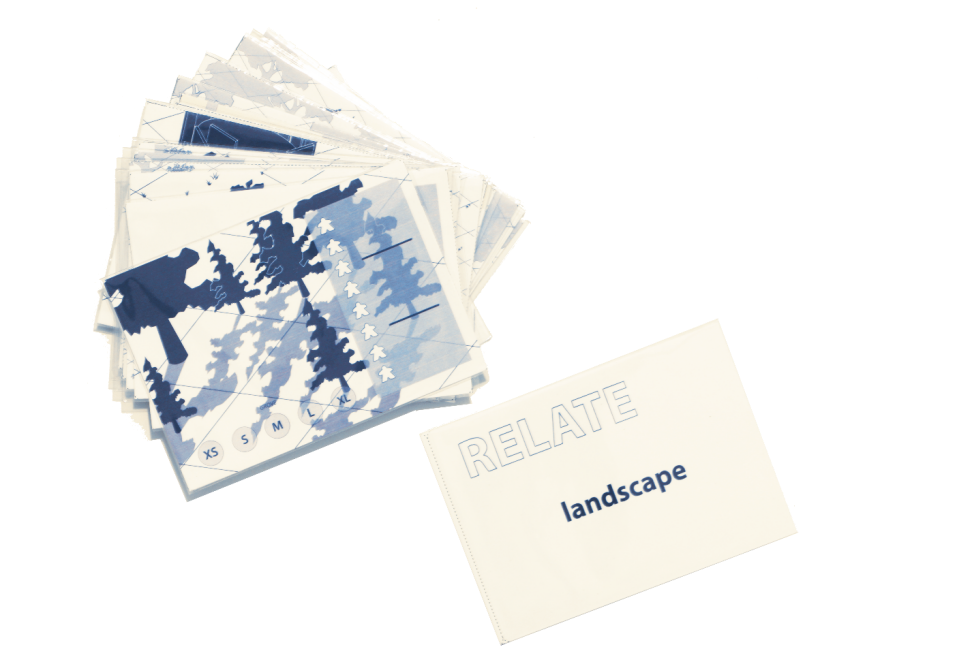
游戲卡片
這個項目的最大挑戰之一就是我必須測試游戲并且確保它可行。但如果將學校的畢業設計項目視為假設項目的話,是不需要測試或者實際建造的。這對我來說無疑是一個挑戰,卻也是這個項目的一個樂趣所在,因為我必須要找人一起玩游戲。而且僅僅是在確保自己擁有正確的資源就已經很困難的前提下,還需要在進行游戲測試之前做很多準備工作:除了設置錄音裝備,還需要準備一系列有針對性的問題,以得到本次游戲版本測試中我想要的反饋。
之所以我覺得這很困難是因為,我的畢業設計只有一個學期的時間來做。在總共10次游戲測試中,我在每次測試之后都會進行一次版本的更新和完善,某種程度上也就相當于我在做10個小項目。這絕對是一個挑戰,但同時也充滿樂趣。
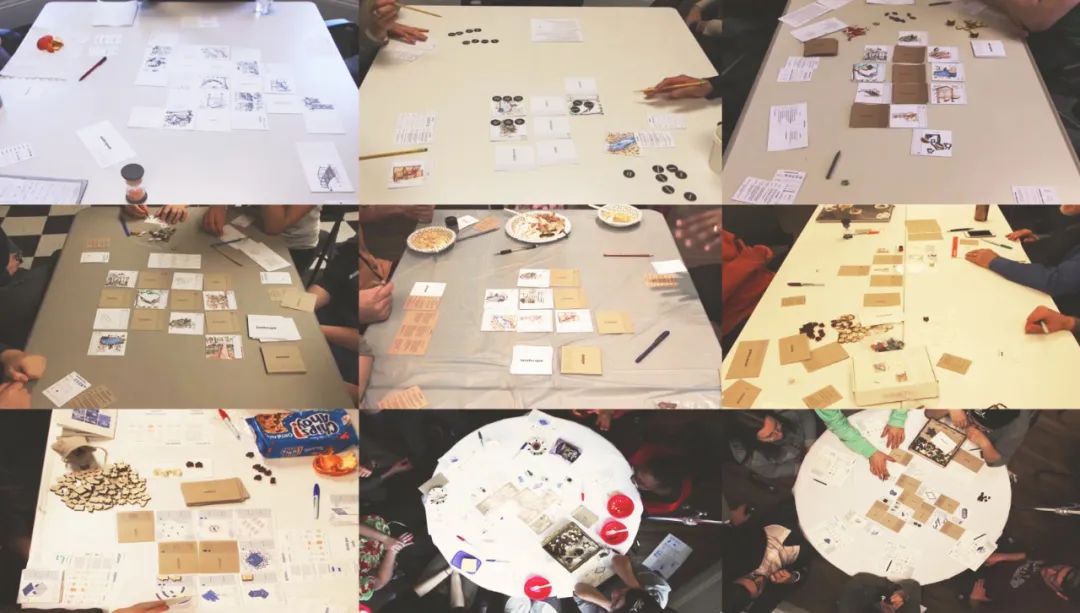
游戲測試記錄
I think what’s different about an academic project as opposed to a tabletop game design is the real connection to people, particularly the future users. Many thesis design projects remain speculative and untested with hypothetical clients or communities that are rarely partnered with – they stop at the proposal phase. The challenge, and the fun part, of the game, was the playtesting with real community members, integrating unpredictable feedback, and constantly iterating. In game design, you need players to actually play the game. It’s a totally different perspective compared to the typical top-down architecture process, and it is just about being on the ground, like touching the soil and planting squash. So, it helps me think realistically, like what people actually need when they design a shared community garden.
One of the biggest challenges of this project is the fact I had to test the game and it had to work. Whereas when you design a school project as a hypothetical landscape project, you don't need to necessarily test it out and build that landscape. It was definitely a challenge, but it was also part of the fun because I got to play the game with people. I would say it was really difficult to just make sure that I had the right resources. There was actually a lot of set up behind the meetings and the playtests that I did. For example, I had to prepare a list of questions and be very intentional about what type of feedback I wanted for that particular iteration in addition to setting up recording equipment.
I think it was particularly difficult because it was over the course of just one semester. I did one iteration in between each of the 10 playtesting sessions. It's almost like doing 10 mini-projects in a certain way. It was definitely challenging in that aspect, but a fun challenge.
█ 你還保存著之前所有版本的游戲卡片嗎?第一個版本是怎樣的?
Do you still have cards for all those versions? What did the first version look like?
C:所有的版本都保存在我紐約的家里。第一版卡片非常大,是粗制的黑白卡。我還留存了很多與我畢業設計相關的視頻。在每一代版本中,我都基于卡片本身的形狀(從六邊形到正方形再到矩形)修改了游戲的結構。我甚至覺得在整個過程中,卡片的設計還可以改變更多。
Yes, I do keep all the versions at my home back in New York. The first version had huge, sketchy, black and white cards. I have a bunch of videos pertaining to my thesis project. Between each generation, I changed the structure of the game itself a lot on top of the cards themselves, from hexagons to squares to rectangles. I would say that the graphics probably could have changed more throughout the process.
█ 在你的游戲設計當中,游戲結構和視覺設計哪個更重要?
Which one do you think is most important in your game design, structure or graphics?
C:我認為這兩者都很重要。事實上在整個過程中,我更加側重考慮游戲機制的作用方式,而不是游戲的視覺設計。但是通過回顧評圖期間我從教授那里得到的反饋,我意識到本可以在游戲的視覺設計上做出更多的努力。
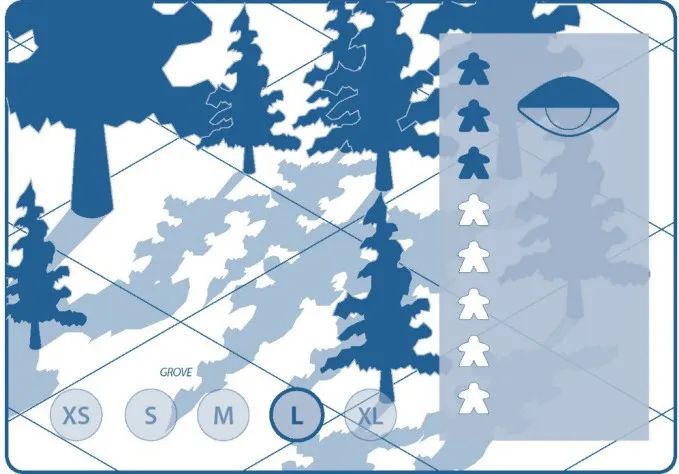
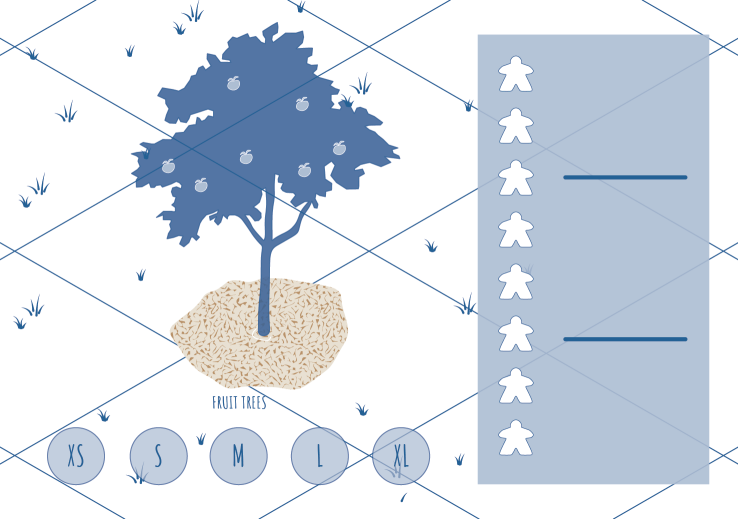
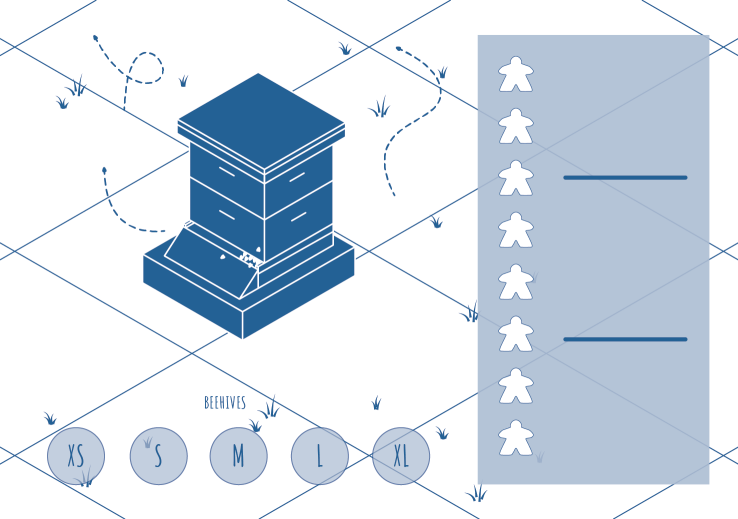
游戲景觀卡
我現在正在通過Patreon (https://www.patreon.com/nimbusbud)開發的版本試圖更具批判性的去考量游戲的視覺設計,因為我認為易于理解視覺設計對游戲而言至關重要。另外,我很喜歡思考視覺設計的原理:游戲卡片不可太粗糙,但也不必太機械。所以我試圖在兩者中尋找一個平衡。
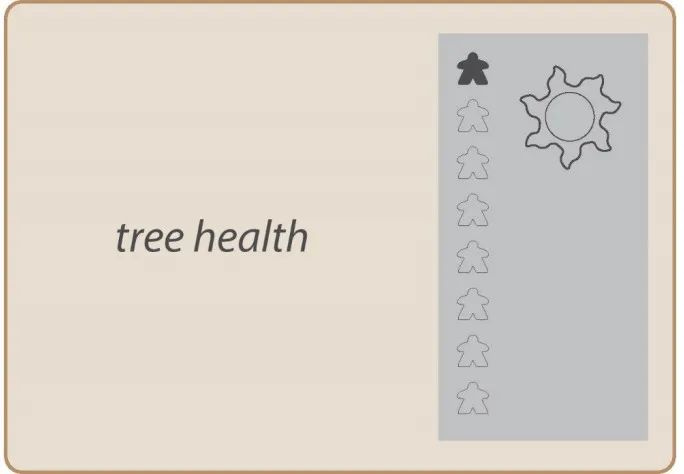
游戲景觀價值卡
這讓我想起我在紐約市立大學建筑學院的畢業設計項目,其中涉及到很多自我探索,關于如何繪畫以及我想如何用我的方式去畫。當時的我是更有意識地將我想要呈現在紙上的東西視覺化。但我認為對于這個景觀游戲項目,我正在嘗試找到文字、圖標、和圖畫之間的平衡,并通過游戲卡片準確地傳達景觀設計的體驗。正如藝術家向觀眾傳遞他們的藝術構思或是建筑師將設計準則融入到項目中的各種部分那樣。在這個景觀游戲的設計過程里,所有的小細節都至關重要。
I would say they are both important. In fact, during the process, I was prioritizing more on how the game would work rather than the graphics of the game. But looking back at the critique I received from my professors and other instructors during reviews, I realized that I could have pushed more on the graphic aspect of the game.
The version I am developing now through my Patreon (https://www.patreon.com/nimbusbud) is really trying to consider graphics more critically, as I think it is crucial to have understandable graphics. Also, I enjoy thinking about how certain graphics work: the cards don’t have to be so sketchy, but it doesn't have to be so mechanical either. I am trying to find a balance in between.
This actually reminds me of my thesis project in architecture school at CUNY City College, which involved a lot of discovering of myself about how to draw and how I wanted to draw personally. I was more intentional about what I was putting on the paper as a visual cue at that time. I think for this landscape game project, I am trying to find the right balance of text, icons, and drawings to accurately convey the experience of the designed landscape using game cards. It’s similar to artists trying to convey their artistic ideas to their audiences or architects incorporating a design standard for accessibility with the other elements of a project. All small details matter as well in my landscape game design.
█ 你是否有考慮過將這款桌式游戲產品化?
Have you ever thought about introducing this tabletop game to the market?
C:這正是我所希望的,并且我正在為此而努力。我下一步可能會通過Patreon開發一個免費版本,之后會優化并在Kickstarter網站上眾籌,最終會是需要付費購買的高級版本。初始版本我希望可以使用簡單的黑白打印機和適宜打印機尺寸的紙張在家里制作完成,這有助于擴大受眾范圍并獲得大量反饋。而且通過這個過程,我需要了解到我的受眾群體是誰。
考慮到目前我有一份全職工作,所以我還沒有預設這款游戲會進入商業的運作模式。但是對于未來的市場來說,我認為景觀建筑師、建筑師、市政府以及學校可能會對這款具有教育和設計方面意義的游戲感興趣,并可能會為該項目投資。如果是這樣,我可能會需要一個全職團隊來負責這個項目。
目前,我想要在景觀建筑領域獲得更多經驗。實際上,在現階段的工作中,我參與的公共會議就有助于我理解這款景觀游戲是如何更貼近現實地去運作。另外,我還需要一些時間去認識和剖析自己,并找到合適的團隊來運作該項目。總之,我的目標是,讓這款游戲成為一項可以養得起整個團隊的全職工作。
Yes, that’s the hope. And I am currently working on it. The next step would probably be a free version through Patreon, then a Kickstarter project, which eventually will be a fancier version that people can purchase. I hope the first few versions will be easily printed at home using simple black and white printers and letter size paper. This helps to reach broader audiences and get a lot of feedback. Through this process, I have to get to know who my audiences are.
And for now, because I am getting paid at a day job, I haven’t expected this game to be a business model yet. But for future marketing, I am imagining landscape architects, architects, city governments, or schools may be interested in this game for both educational and design purposes and would potentially invest in this game. I would probably also need a full-time team working on it.
For now, I would like to get a little bit more experience in the field of landscape architecture. In fact, in my current job, the public meetings that I attend help me to understand how my game will work more realistically. I need some time to get to know and learn more about myself and also find the right team to work on the project. But eventually, I will work fulltime on it and be able to pay for the team. That’s my goal.
█ 有沒有考慮過將這款游戲做成移動應用程序APP,以便更多人可以更方便的參與到游戲當中?
Will you put this landscape game as a mobile app on the market so that more people can play without buying the cards or print at home?
C:目前我應該不會這么做。雖然我在畢設學期做這個項目用了大量的紙張,整個過程也挺浪費的,我也在考慮如何以一種更友好的方式來保護我們的環境。但我真的希望人們在玩游戲的時候可以面對面交流。盡管有些游戲可以讓處于同一空間的人們共同通過手機來進行游戲,但是桌游的物理特性會讓游戲玩起來更有代入感。而且與家人朋友在現實中一起游戲和互動要比大家雖然坐在一起,但大部分時間還是各自面對手機的體驗好得多。
據我所知,許多決定都還是在面對面的會議中完成的,就像你不會在與公共機構的會議中做看著你的手機去做有關公園等事的重大決定。因此,面對面的互動對我而言意義重大,這也是我想要保持桌游本身物理屬性的最重要的原因。但這并不表示這款游戲不會做電子版本。事實上我認為電子版本與實體版本應該具有不同的用途,實體版本有著更好的決策效果和設計表現,那數字版本就可能會更多用于涉及研究和解決需要復雜計算或視覺效果的項目技術挑戰。
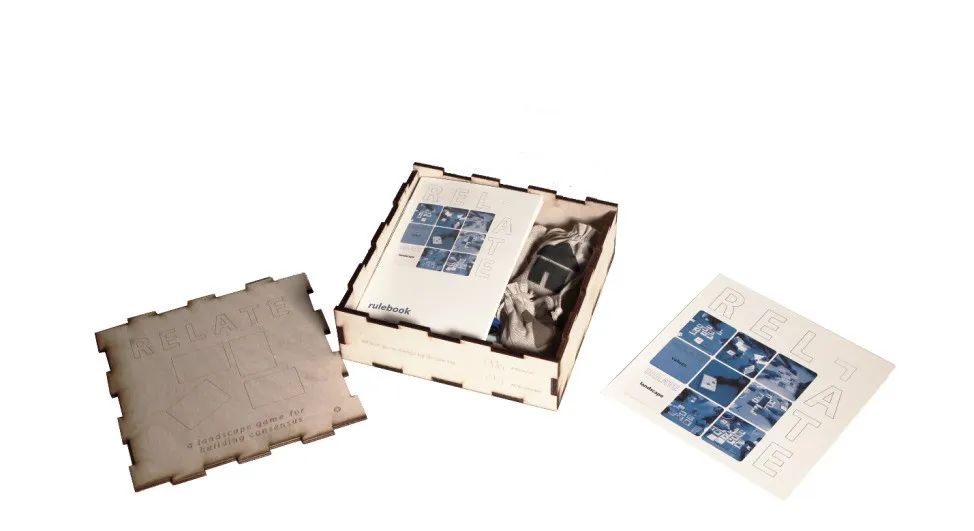
游戲實物
I don’t think I will do so...yet. During my thesis semester, I used a lot of paper for this project. The whole process was actually pretty wasteful. So, I was thinking of how to be more sensitive in a way to protect our environment. But I’d like people to have face to face interactions when they play the game. Though there are games people can play together on their phone while also being in the same room, the physicality of the game will make it more accessible. It’s more important to be present with family and friends and interact with one other physically, instead of playing games together but looking at phones most of the time.
Many decisions are still made during face-to-face meetings, and you wouldn’t look at your phones when you are in a meeting with a public agency trying to make a very important decision about parks or something. Face-to-face interaction is really important to me, which is the most important reason why I would like to keep the game in a physical form. But I am not saying it cannot be digital. I think the digital version should have a different purpose compared to the physical version. While the physical one involves more decision-making power and design, the digital could be more about research and addressing the technical challenges of a project requiring complex calculations or visuals.
█ 你曾經有做過類似的游戲設計項目?
Have you ever had similar projects like designing games?
C:沒有。這是我第一次設計一款實體的桌游。但我記得我曾在本科的建筑學院上過一節叫做“食品與建筑”的課程。這門課非常有意思,因為每個小組需要每周向全班展示一種不同的食物或向全班傳達一種想法。從本質上看,這更像一個類似研討會形式的小實驗。我覺得這個課程的構架很像在進行游戲設計,卻不是一個完整的游戲設計項目流程。
I don't think so. It was the first time that I designed an actual game. But I remember when I was in architecture school, I took one course called Food and Architecture. It was an interesting class because each group needed to present a different food or communicate a certain idea to the class every week. Essentially, it was more like an exercise trying to put a workshop together. That, I think, was related to designing a game, but it was not a full game project.
02 / 景觀桌游鼓勵觀眾參與設計
Landscape Board Game
help the public involved in the design process
█ 公眾如何通過此款游戲與景觀設計師合作,參與設計?
How can the public collaborate with landscape designers by using this game?
C:這個游戲希望公眾在家就可以完成卡片打印并進行游戲。通過這種便捷的方式使公眾在家能夠隨時設想共享景觀設計方案,讓人們有更多機會與景觀專業人士和當地社區領導進行更有效的溝通。除此之外就是為公眾提供了一個特定的平臺,使其可以通過游戲結果與本地的景觀設計師取得聯系。我相信景觀建筑師協會(ASLA)或政府部門會對此做出相關舉措。
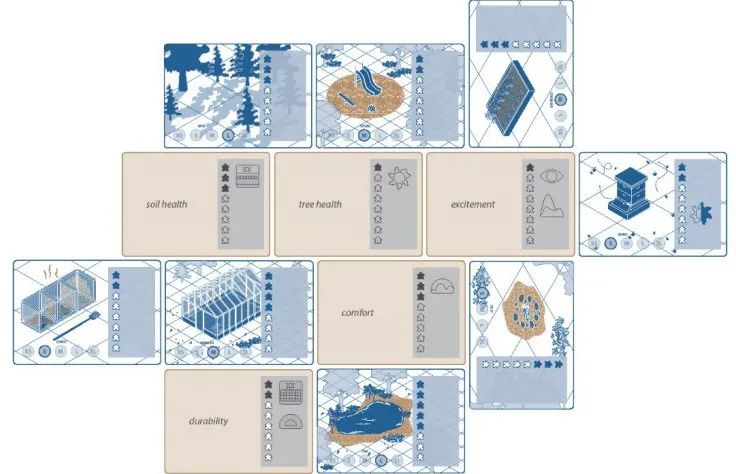
游戲結果示意
The game is meant to be printed and played at home. By providing a way for families to think about the design of their shared landscapes at their own convenience allows for more opportunities for people to initiate impactful conversations with landscape professionals and local community leaders. What remains is a specific platform for people to contact their local designers with the outcomes of their games, of which I can imagine ASLA chapters or city governments playing a part.
█ 與建筑相比,景觀建筑是否是幫助改善和設計公共空間更有力的方式?
Do you consider landscape architecture as a more powerful tool than architecture to help change and design the public areas?
C:我在本科建筑學習結束之后工作了一年,回顧我的個人經歷,我可能會說“是的”。景觀建筑師因其對戶外空間的關注從直覺上擁有改變和設計公共空間的能力。除了圍繞系統思考和環境影響的探討越來越多之外,這種特質還使景觀設計師處于當前面臨的設計挑戰的關鍵位置。我選擇在工作后去學習景觀建筑的部分原因是,我發現了在公共項目中開展工作以及與更多人一起協作的潛力。
如果考慮專業的起源,比如在歷史課的介紹中,景觀建筑從最初便是一個公共課題。相關文獻大量提及了該專業聚焦戶外空間的體驗以及人人都可以共享戶外空間的特征。從我個人角度來看,在建筑領域會有更多的私人業務,比如為富裕的客戶設計一些高端住宅等等。大多數時候,除非在公共機構工作,否則在建筑領域很難以公眾為導向。這并不代表建筑公司就不從事公共工作或者不考慮公共空間,只是相比景觀項目來說,公共性的體現并不是那么直觀。
我的工作經歷只是幫我邁出了思考公共工作的第一步,后來我申請了景觀建筑的研究生項目更多地是出于自身興趣。雖然我在紐約長大,目睹了各式各樣的建筑,但我卻癡迷于在山間遠足。最近更是被城市農場和花園所吸引,這也是人們通常說到景觀時腦海中會浮現的場景。同時,我也開始思考景觀作為一種我們和彼此、和動植物以及土壤之間,超乎于個體與個體之間聯系的媒介,這可能跟人們通常的認知不太一樣。因此我認為就從事公共工作而言,每個人的選擇是不同的。這取決于在景觀建筑和建筑領域,你將什么人和哪些事物定義成“公眾”和“公共的”,以及你對在這些實踐和真實工作背后作為設計師的身份的定義。
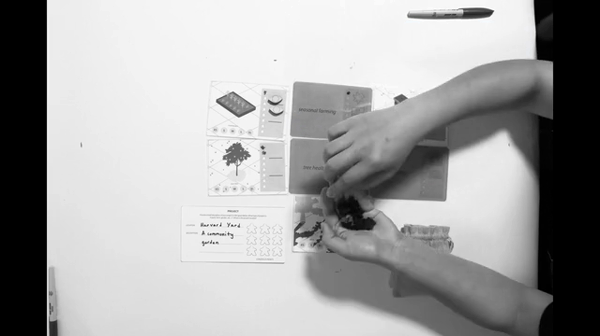
游戲過程
I worked one year in architecture after finishing architecture school. Looking back at my personal experience, I would probably say yes. Landscape architects intuitively have the power to change and design public spaces by virtue of its focus on outdoor spaces. This aspect, in addition to the increasing conversations around systems thinking and environmental impact, puts landscape architects at the nexus of current design challenges. Part of the reason why I went to study landscape architecture after working was that I started to see more potential for working on public projects and with more people in a collaborative process.
If you think about the origins of the profession, say in history class, landscape architecture started out as a public project. Related literature talks more about the experience of outdoor spaces, where everybody shares them. From my personal perspective, there will be more private commissions in architecture, like for wealthy clients for some high-end residential projects. Most of the time in the architecture field, it’s difficult to be publicly oriented unless you work for a public agency, but I don’t mean that architecture firms do not do public work or think about public spaces. It is just less intuitive compared to landscape projects.
I should say that my working experience was just one step towards helping me think about public work. It’s more of my own prior interests that led me to apply to a landscape architecture program afterward. Even though I was born and raised in New York City, which has lots of great (and not so great) architecture, I would feel driven to go hiking to be in the mountains and forests. More recently I’ve been drawn to urban farms and gardens. That’s what people usually think about when they think about landscape. However, I also started to think about landscape as an indicator of the relationships we have with one another, with plants and animals, and the soil—beyond a singular project—which may not be what people typically think about. So I think, in terms of pursuing public work, it’s a different choice for everyone. It depends on who or what you consider to be “the public” or “public” in landscape architecture and architecture, and where you see yourself as a designer in relation to these practices and the real work behind them.
█ 你如何看待景觀游戲將作為一個有效途徑讓公眾產生改善環境的個人責任感?景觀游戲能夠作為一種教育方式,讓人們更有責任感?
How do you think landscape games will be an effective way for the public to feel responsible for changing our environment? Do you consider landscape games as an educational tool to make people feel more responsible?
C:景觀游戲的目的不是轉移職業責任,也不是說服不關心環境的人讓他們突然產生責任感,即便這是有可能發生的。這個游戲意在成為一種工具,并通過適當的方式更好地幫助那些對關心環境的人們參與其中。
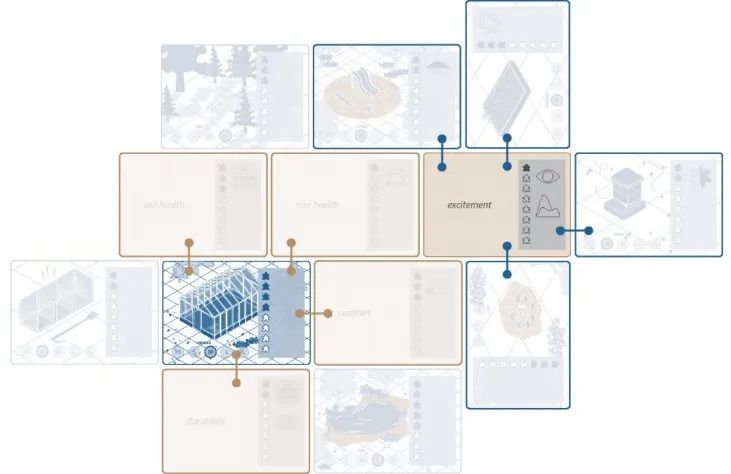
游戲結果分析
Landscape games are not meant to divert professional responsibility, nor to convince people who don’t care about their environment to suddenly feel responsible (although that may happen). They are meant as tools for people who do care, to better support them towards implementing changes in a sensitive way.
03 / 對景觀學生的建議
Suggestions for Landscape Students
█ 對于ASLA學生獎,作品的圖面表達是否很重要?
Do you think the graphics of the project also matters for the award?
C:是的。因為我的獎項類別略有不同,所以我有通過視頻以及實體游戲成品來表述我的想法。我也知道一些朋友為參賽而重新繪圖。說到平面表達,我認為涵蓋不同類型的表達方式會對評獎有所幫助。這跟如何建立作品集的框架是一個道理,需要包括抽象圖標,細節圖紙以及實體模型的照片等。
Yes, I think so. My award category is a little bit different and I had videos or physical game pieces to communicate my ideas. But I do know some friends who redraw their work for the submission. Speaking of graphics, I think it’s helpful to have different types. It’s actually similar to how you would structure your portfolio, including abstract diagrams, very detailed drawings, and photos of physical prototypes.
█ 對有興趣申請ASLA學生獎的同學,有什么建議嗎?
For students who are interested in applying for the ASLA awards, do you have any suggestions or tips for them?
C:首先,參賽時選擇適合的獎項類別。我提交的是交流溝通類而不是通用設計類,因為我的設計更多的是向外界傳達什么是景觀以及它可能是什么。雖說我覺得ASLA今年有增加更多的類別,但是首先,我認為你要找到自己有共鳴的主題或項目,興趣會讓你在這個項目上表現出色,同時你也要通過努力準備好所有材料。
提交參賽作品的當天,其實是我的畢業設計答辯,這有些令我感到壓力很大。正如我之前所說,我已經在做整個畢業設計的過程中投入了所有的經歷,我已經有了參賽需要的材料,需要做的只是提交。這真的是做喜歡并真正有價值的事。
另一個建議是,要在完成項目過程的中有計劃的整理和完善零散的想法。在做一個好的項目的同時,清楚地表述想法也至關重要。參加該競賽需要提交大量文字內容,我當時寫了大約1500字來講述設計。這既是對項目的闡述,又能幫助其他設計師理解你的設計作品,因此我會對寫作十分重視。在哈佛大學設計學院GSD時,我曾做過學術寫作助教并在圖書館工作,有機會寫一些東西。
最后,善用提交補充材料的機會。組委會提供提交補充材料的選項,我寄出了我設計的游戲實物,同時也遞交了所有相關視頻的。多種媒介是、可以幫助別人看到作品不同角度。
One aspect that might be helpful in terms of the awards is selecting the right category. I submitted in the communication category instead of the design project because it was more about communicating what landscape is and what it could be. They are in fact adding more categories this year, I think. But first of all, it’s really important to find a particular topic or project that you really care about—your interest will drive you to do well on that project, and you will have all of the material (your hard work!) you need for your submission.
When I submitted for this award, it was actually the day of my thesis presentation, which was kind of stressful. The good thing was that I had already put all the investment into the project for my thesis. I had all the work done already. All I needed to do was submit it. It’s really just about working on something you enjoy and genuinely value.
A small tip that might be useful for submitting the work is actually putting together the writing part gradually over the course of your project. The award requires a good amount of text—I wrote about 1500 words—to explain the project. It’s a statement of your project and how you would like to communicate with other designers its importance. I would work on writing a lot, which has personally always been important to me. While at GSD, I was an academic writing tutor and worked in the library. I was surrounded by writing a lot and I feel like it’s always crucial to articulate your ideas besides doing a really good project.
Another helpful tip may be to submit supplements. They have an optional supplement choice, for which I sent a physical copy of the game I designed. I also submitted all the links to the videos that I produced. Using multi-media is a helpful way for people to see your project from different perspectives. So, if there’s the option for a supplement, definitely submit it!
█ 對跨專業話題感興趣的同學,你有什么建議嗎?
Do you have suggestions for people who're interested in cross-major topics?
C:我的建議是在設計開始之前,上一門相關的課程。如果是已經報滿的課程,可以去詢問教授要求旁聽。我正是如此參加了一門對景觀建筑學習很重要的課程。所以如果你真的想要學習一些東西,那就去上課吧,教授一定會同意的。
學習這些課程讓我有機會接觸到對不同話題感興趣的人,也能夠參與到學生組織舉辦的各種活動。學生們通常來自不同專業背景,這有助于我了解到不同的專業方向。同時也可以與教授進行交流,獲取資源,比如課程大綱和閱讀清單。
有三本書對我當時的跨界設計非常有幫助,作者是Austin Kleon,書名是《像藝術家一樣剽竊》、《展示你的作品》以及《繼續前進》。他們都是自我激勵的圖畫書。我也會時常更新個人網站上的閱讀清單(https://upinthenimbus.com/readinglist/),閱讀大量書籍有助于我了解跨學科話題。
人們會在不同事物中尋找和發掘出與眾不同的意義,就像我定義景觀的方式或許就和其他人不同。而你需要做的是,找到對你來說重要的事情。有時只是需要一個契機,比如搬到另某個城市定居,當擁有足夠的時間、舒適的空間及平和的心態時,在內心深處追問,你就會發現自己真正關心的是什么。通常情況下,這或許是一個包含許多主題的網絡,上面所有的一切都與你自己息息相關。
If you are interested in doing something that is not or doesn't seem like it's specifically architecture. I would take a class, like in the MIT education department, for example, and I wouldn't wait until the thesis semester to do so. For some classes that were full, I simply just went and asked the professor if I could sit in the lecture. I was able to participate in one course that I felt was really important for my landscape architecture study by asking because I only had two years at GSD and not many electives. So if you genuinely want to learn something, just go and the professor will definitely say yes.
Taking those classes allowed me to be surrounded by people interested in different topics, and participate in a lot of events that were run by different student groups. People usually come from different backgrounds and have various concentrations, which helps me get to know the multiple aspects of various subjects. You can also talk to the professor who is teaching the class and ask for the syllabus and what the readings are. Getting resources is always helpful.
There are three books that I think are pretty helpful. Steal Like an Artist, Show Your Work and Keep Going by Austin Kleon. They are like self-motivation graphic books. I also have a reading list (https://upinthenimbus.com/readinglist/) on my personal website, which I try to keep updated. I think it’s pretty helpful to help understand cross-major topics.
People are going to find meanings in different things. Like the way I define landscape might be different from other people. You really want to find things that matter most to you. Sometimes it takes some time, like getting settled after moving to a different country or city. Deep down, when given the time and space—and peace of mind—you will find what you really care about, and it will likely be a web of many topics—all of which are connected to you.
訪談|馬元鳴 Yuanming Ma, 栗茜 Sherry Li
文案/翻譯|馬元鳴 Yuanming Ma
校對|栗茜 Sherry Li,Yuxin Pan,鑫然 Sara Li
編輯|Winnie
審核編輯|Yibo
版權?建道筑格ArchiDogs,轉載請聯系media@archidogs.com
若有涉及任何版權問題,請聯系media@archidogs.com,我們將盡快妥善處理。

